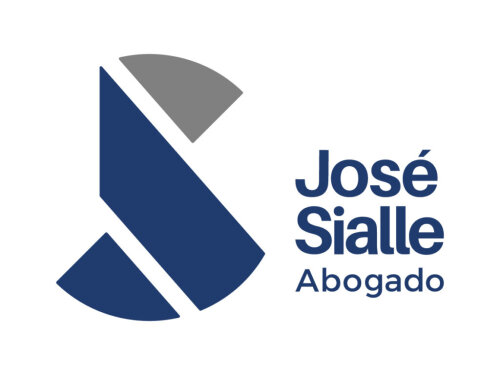Best Trusts Lawyers in Córdoba
Share your needs with us, get contacted by law firms.
Free. Takes 2 min.
List of the best lawyers in Córdoba, Argentina
About Trusts Law in Córdoba, Argentina
A trust - commonly called a fideicomiso in Argentina - is a legal arrangement where one person or entity (the settlor or fiduciante) transfers assets to another person or entity (the trustee or fiduciario) to hold and manage for the benefit of one or more beneficiaries. In Argentina trust structures are widely used for estate planning, real estate development, asset management, guarantees and collective investment vehicles. Although Argentina follows a civil law tradition, the fideicomiso is a well established tool and is governed by national rules found in the Civil and Commercial Code and related regulations, together with specific administrative and tax rules. In Córdoba province, trusts that involve real estate or provincial tax issues must comply with both national law and the local formalities required by provincial authorities.
Why You May Need a Lawyer
Trusts involve legal, fiscal and practical decisions that have long-term consequences. A lawyer experienced in trusts and local practice can help with:
- Designing the trust structure that meets your objectives - estate planning, creditor protection, investment funds, project financing or guarantees.
- Drafting the trust instrument and related contracts to ensure legal validity and clarity of powers, duties and limits.
- Ensuring formal requirements are met for transfers of assets - in particular for immovable property where public deeds and registration in the property registry are typically required.
- Explaining and planning for tax consequences at national and provincial level, and advising on regulatory compliance.
- Representing parties in disputes - breaches of duty by a trustee, conflicts between beneficiaries, challenges to the validity of a trust or issues in trust termination and distribution.
- Coordinating with notaries, accountants and registries to complete formal steps and ongoing administration - accounting, reporting and compliance.
Local Laws Overview
Key legal and practical aspects to keep in mind when dealing with trusts in Córdoba include:
- Governing law - Trusts in Argentina are primarily regulated by national legislation contained in the Civil and Commercial Code and by specific rules that address the nature, formation and effects of fideicomisos. Provincial formalities and tax rules also apply when local assets or activities are involved.
- Parties and roles - The usual parties are the settlor - who transfers assets to the trust - the trustee - who administers the trust assets - and the beneficiary or beneficiaries - who receive the benefits. Trustee duties typically include loyalty, prudence, segregation of trust assets and periodic accounting.
- Formalities for immovable property - To place real estate into a trust you generally need a public deed executed before a notary public - an escribano - and registration of the transfer or encumbrance in the Provincial Real Estate Registry. Failure to follow these steps can compromise protection and enforceability.
- Types and purposes - Trusts can be inter vivos (created during the settlors lifetime) or testamentary (created by will). Common purposes include estate planning, project financing and real estate development, security for obligations, and collective investment vehicles.
- Tax and reporting - Trusts can have distinct tax implications depending on their structure and purpose. Income and capital gains, stamp taxes and provincial taxes may apply. Some trusts are fiscally transparent while others are taxed as separate patrimonies. Tax treatment can vary by case and by province, so professional tax advice is essential.
- Regulation and oversight - Administrative registrations, tax registrations and compliance with foreign exchange rules or securities regulations may be necessary depending on activities and beneficiaries. Provincial bodies may require specific filings for real estate and some commercial activities.
- Duration and termination - Trust instruments should specify duration, conditions for termination and the mechanism for distribution of assets. Legal rules may limit perpetuities in some cases, so drafting must be precise.
Frequently Asked Questions
What is a fiduciary trust or fideicomiso?
A fideicomiso is a legal arrangement where a settlor transfers assets to a trustee to manage for the benefit of one or more beneficiaries under terms set out in the trust instrument. It separates legal ownership from beneficial ownership - the trustee holds legal title but must follow the trusts objectives for the beneficiaries benefit.
How do I create a trust in Córdoba?
Creation typically requires a written trust instrument drafted by a lawyer. If the trust includes real estate, a public deed executed by an escribano and registration in the Provincial Real Estate Registry will be necessary. The instrument should define parties, trust assets, powers and duties of the trustee, beneficiaries, duration and termination rules.
Can real estate in Córdoba be placed in a trust?
Yes. Real estate can be transferred into a fideicomiso, but formal requirements are strict - a public deed is usually required and the transaction must be recorded in the Córdoba property registry. Proper registration is crucial to protect the trust assets and make the arrangement enforceable against third parties.
Do trusts avoid inheritance or succession formalities?
Trusts can be an effective tool for estate planning because they allow the settlor to define how assets will be managed and distributed without waiting for probate. However, certain forced heirship rules and family rights may apply depending on the circumstances, and provincial inheritance taxes or obligations could still be relevant. Legal advice is needed to understand how a trust interacts with succession law in each case.
What duties does a trustee have?
A trustee must act in the beneficiaries best interests, exercise prudence and diligence in managing trust assets, keep assets segregated from personal assets, provide accounting and information as required by the trust instrument or law, and avoid conflicts of interest. Breach of duty can give rise to liability.
How are trusts taxed in Argentina?
Tax treatment depends on the trust type and its activities. Income tax, capital gains, stamp tax and provincial taxes can apply. Some trusts are considered separate taxable patrimonies while others are fiscally transparent. Registration for tax purposes and ongoing reporting to national and provincial authorities is often required. You should consult a tax advisor to determine the specific tax consequences for your situation.
Can beneficiaries or heirs challenge a trust?
Yes. Beneficiaries or heirs may challenge a trust on grounds such as lack of capacity of the settlor, formal defects in the trust instrument, fraud or violation of mandatory succession rights. Timely legal advice and careful drafting can reduce the risk of successful challenges.
How long can a trust last?
The trust instrument should set the duration. Some trusts are created for a fixed period or until a specific event. Civil law limits on perpetual trusts may apply, so it is important to define duration clearly and comply with any statutory limitations.
What documents and information will a lawyer need to set up a trust?
Common documents include identification of the settlor, trustee and beneficiaries, title deeds and documentation for assets to be transferred, existing loan or lien information, tax identification numbers, and any contracts related to the assets. A lawyer will also need clear instructions about the trusts objectives and distribution rules.
How do I find a qualified lawyer or notary in Córdoba?
Look for lawyers and escribanos with specific experience in fideicomisos, property law and tax matters. Professional organizations such as the local bar association and the college of notaries can help you verify credentials. A lawyer should explain options, required formalities, likely costs and the timeline for setting up and administering the trust.
Additional Resources
Entities and resources to consult when dealing with trusts in Córdoba include:
- Dirección General de Rentas de la Provincia de Córdoba for provincial tax matters and requirements
- Registro de la Propiedad Inmueble de la Provincia de Córdoba for registration of real estate transactions
- Administración Federal de Ingresos Públicos - AFIP - for national tax registration and reporting
- Colegio de Abogados de Córdoba to verify lawyer credentials and find specialists in trusts and succession law
- Colegio de Escribanos de la Provincia de Córdoba for notarial services and formal deed execution
- Specialized law firms and tax advisors with experience in fideicomisos, estate planning and real estate development
Next Steps
If you think a trust may be appropriate for your needs - follow these steps to proceed:
- Clarify your objectives - asset protection, succession planning, project financing, guarantee or investment.
- Gather documentation - identification, asset deeds, contracts, tax records and any existing wills or estate plans.
- Consult a lawyer with experience in trusts, property and tax matters in Córdoba. Ask about their experience, fees and expected timeline.
- Coordinate with a notary public - a notario or escribano - for formal deeds when real estate is involved.
- Obtain tax advice to understand national and provincial tax consequences, reporting obligations and any potential liabilities.
- Draft and review the trust instrument carefully - make sure it addresses powers of the trustee, beneficiary rights, duration, termination and dispute resolution procedures.
- Complete necessary registrations - property registry, tax registrations and any required administrative filings - and maintain proper accounting and records during the trusts life.
This guide provides general information and does not replace personalized legal advice. For decisions that affect your assets and family, consult a qualified lawyer in Córdoba who can analyze your specific circumstances and prepare the proper legal instruments.
Lawzana helps you find the best lawyers and law firms in Córdoba through a curated and pre-screened list of qualified legal professionals. Our platform offers rankings and detailed profiles of attorneys and law firms, allowing you to compare based on practice areas, including Trusts, experience, and client feedback.
Each profile includes a description of the firm's areas of practice, client reviews, team members and partners, year of establishment, spoken languages, office locations, contact information, social media presence, and any published articles or resources. Most firms on our platform speak English and are experienced in both local and international legal matters.
Get a quote from top-rated law firms in Córdoba, Argentina — quickly, securely, and without unnecessary hassle.
Disclaimer:
The information provided on this page is for general informational purposes only and does not constitute legal advice. While we strive to ensure the accuracy and relevance of the content, legal information may change over time, and interpretations of the law can vary. You should always consult with a qualified legal professional for advice specific to your situation.
We disclaim all liability for actions taken or not taken based on the content of this page. If you believe any information is incorrect or outdated, please contact us, and we will review and update it where appropriate.









